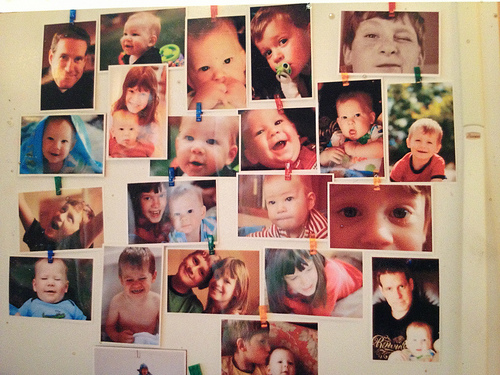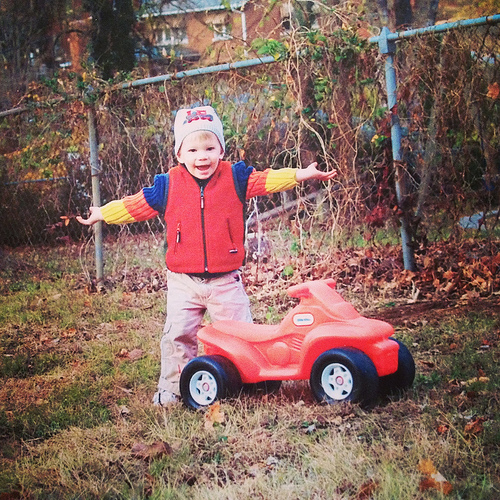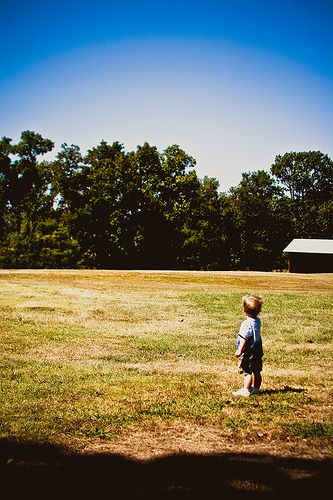Starting a family is a soul-shaping, world-altering experience. Unfortunately, in a culture of competing values and protracted timelines, couples are increasingly backing their way into parenting or missing it altogether. By the time the average couple tries to have kids, they are often beyond their late twenties and surprised to learn they are sliding past the peak of their fertile years. In our book Start Your Family, we encourage couples to be intentional about their timeline in the early years of marriage and to trust God to help them boldly launch their families. Responding to the most common doubts and hurdles, we offer biblical inspiration for the questions, "Why have kids?," "When is the best time to start?" and "How can we fit kids into our lives?"
See all our blog posts on starting a family.
EXCERPTS
We of the Xer generations and following stop to ask, “Why?” We don’t just do things out of tradition or expectation. We don’t just have kids because that’s what’s expected or because it’s what our parents did. We’ve moved beyond that. We have kids as a statement, as a lifestyle choice. But the choice to have children now sits on a shelf in a growing supermarket of options leaving couples asking why that choice would be better than any other. More
Most couples have some kind of timeline in mind for when it feels right to have a baby. Maybe it’s vague, maybe you haven’t talked it through as a couple to land on a precise target, but you likely have a sense of what you think needs to happen first and what conditions you think would be optimal for a good start. More
Having a vision for why and when to start a family can give you new momentum, but you’ll need all the extra motivation you can find once you start thinking through the logistics, the how. This is the place where the things that might be stirring in your heart meet the practical questions from your head: “How can we afford this?” “How will this affect our work?” “How are we going to manage all the care a baby will need?” “How do we prepare a home for a baby?” More
REVIEWS
"Snuggling the Stork" in Christianity Today's Books and Culture, by Jenny Schroedel, author of Naming the Child
The Watters suggest that you don't have to have a water-tight plan or the funds for a Pottery Barn Nursery to begin the process of conception. Just begin. Begin where you are, Begin with hope: that's the message. Start Your Family is not a pregnancy manual or a preconception checkbook. It is a guide through the emotional, financial, and spiritual geography surrounding the choice to procreate. The Watters talk about the choices they wish they'd made differently as well the struggles and joys they experience daily as the parents of four children. (keep reading)
Review by Kevin DeYoung, author of Just Do Something
Start Your Family is a surprisingly good book. I say surprisingly not because I expected a bad book, but because I expected an overly-sentimental, "children are so awesome", lightweight kind of book. But this book is much better than that.
Review by Carolyn McCulley, author of Radical Womanhood
It's an engaging book, easy to read, and persuasive in its arguments. The foundation of the book is the idea that being intentional about starting a family is a good and godly thing. But because in the last half century, "choice has grown into one of our greatest commodities," many young couples see having children as a lifestyle choice and fail to understand the biblical reasons for having children.
Order your copy here.
ENDORSEMENTS
The appearance of Steve and Candice Watters' START YOUR FAMILY is a joyous event. They understand that God was serious in commanding the newly created man and woman to "be fruitful and multiply." The Watters correctly argue that starting a family remains "a soul-shaping, world altering experience." As Martin Luther once put it, the adventure of producing and bringing up children "is a kind of faint image...of that blessed living together" in Eden, a chance to participate in "the greatest work of God." Ably written and offering both practical advice and spiritual encouragement, START YOUR FAMILY should be read by every Christian couple entering into marriage or considering whether to start a family or have another child. —Allan Carlson, President, The Howard Center for Family, Religion and Society
This book is astutely wise. It cuts against the grain of weak and fearful thinking. It will startle you and free you to trust God with your family and your future. That's when you find what real life is all about. You can never afford to have kids--so why not trust God and get started?—Steve and Mary Farrar, authors of Point Man and King Me (Steve) andReading Your Male (Mary)
A remarkable, go-against-the-grain book, with wisdom, practical advice and biblical application bounding from every page. The Watters have written an emotionally aware and intellectually astute book that is as sensitive as it is compelling.—Gary Thomas, author of Sacred Marriage and Sacred Parenting
Just like "in the beginning," the family today is at the center of a great spiritual battle. Start Your Family will certainly inspire couples to reclaim the blessing of children and, through that, build a true culture of life.—Christopher West, fellow, Theology of the Body Institute, and author of The Love That Satisfies and Good News about Sex and Marriage





